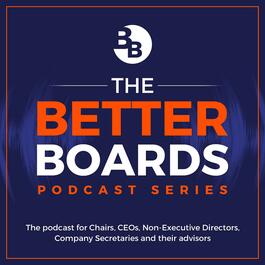
Employee representation on the board | Gabriele Bornemann, CEO Management Alliance
Send us a text Employee representation is a specific requirement for German boards, but global boards can learn from Germany. More and more boards have an employee representative, mostly a director, who brings employees’ perspectives back to the board. In this podcast, Dr Sabine Dembkowski, founder and managing partner of Better Boards, discusses employee representation on the board with Gabriele Bornemann, who wants to set new standards for qualification supervisory boards with her company Management Alliance. Before that, Gabriele worked in industry and finance for over 25 years. She was responsible for investor relations, M&A, risk management, and strategy. “We do not ALL like this option to have equal representation” Gabriele outlines the concept of labour representation at the board level in Germany – a unique approach shaped by the country’s two-tier corporate governance system. Unlike the Anglo-Saxon one-tier system, where the board has direct engagement with employees, German supervisory boards are legally required to remain independent and cannot interact directly with employees. “Profitability of the company as a whole is at stake” Gabriele accepts that labour representation on the board is not without its challenges. A key example is Volkswagen, where employee representatives hold significant influence over management decisions, and their primary concern is job security and maintaining production sites in Germany – but business realities demand a shift toward new markets. If changes in sales and procurement make Germany less viable as a production hub, the company must adapt, even if it means relocating operations. With strong employee representation, these strategic shifts can become contentious, with decisions to prioritise national job security over global competitiveness. “Codetermination also has also a very positive impact on the structure of a company” Gabriele explains that the origins of codetermination in Germany are deeply rooted in history. Emerging after World War II, it was designed to safeguard labour rights in an evolving and increasingly competitive market. While it has its challenges, she knows that the system also brings clear advantages, especially in ensuring greater oversight within corporate governance structures. “It"s very important that we have a strong chairman of the supervisory board” Gabriele believes that co-determination presents both opportunities and challenges. The key to making it work lies in how the different parties collaborate, the composition of the supervisory board, the role of the supervisory board"s composition, and the chair"s role. She advises that a strong chair is essential to balance perspectives and ensure discussions remain productive rather than divisive. The three top takeaways from our conversation are: 1. Co-determination in Germany makes sense because supervisory boards have no direct access to employees, and it is important to integrate the employee perspective into their work. 2. The weakness of codetermination is the lack of internationality in international business models. 3. A very strong supervisory board chair is important to consider the common strengths of both shareholder and employee representatives.
From "The Better Boards Podcast Series"


Comments
Add comment Feedback